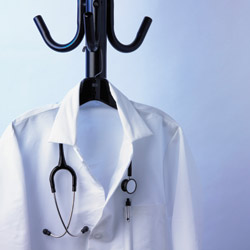Local Cardiac Network Partnership Saves Lives

February is a month well-known for hearts: candy hearts, Valentine cards and heartfelt gifts to loved ones. It’s especially appropriate that February is also American Heart Month—a time when the community is encouraged to trade bad habits for heart-smart ones, as well as to learn the symptoms of a heart attack and when to seek immediate medical attention.
If you believe you are experiencing a heart attack, you should immediately take an uncoated aspirin and call 911. Do not attempt to drive yourself to the hospital. An ambulance can get you there faster and offers the benefit of early treatment during your transport.
“When it comes to heart attacks, time is muscle,” says John Rashid, MD, lead physician champion for the 777 Program at OSF Saint Francis Heart Hospital and a partner at HeartCare Midwest. “The quicker we can get the blocked artery open again, the more heart muscle we can save.”
The 777 Program
The 777 Program at OSF Saint Francis Heart Hospital was started over five years ago and helps to ensure that the response to a heart attack is as fast as possible. The program is a series of standard protocols and procedures designed specifically for the care of heart attack patients. It was named after the three-digit code that healthcare professionals receive on their pagers when they are being summoned to respond to a heart attack.
The 777 Program is making a significant impact by greatly reducing the amount of time it takes for patients to receive the treatment they need. The professional standard by which this is gauged is known as the “door-to-balloon” time, which refers to the interval between a patient’s arrival at the hospital and the doctor’s opening of the artery by inserting and inflating a tiny balloon. In the third quarter of 2009, the program averaged a time of 51 minutes from door to Percutaneous Coronary Intervention (PCI), a procedure that re-establishes blood flow to the coronary arteries. One hundred percent of patients received PCI in less than the nationally established 90-minute standard.
The Heart 777 Program
It takes a collaborative effort to achieve such high standards. “These outstanding results come from the efforts of multiple partners working together. The coordinated response begins with the paramedics through the entire emergency department team at Saint Francis Medical Center and culminates in a very rapid response by the staff in the Cardiac Catheterization Lab, including the cardiologists,” said Dr. Donald McElroy, CEO of Cardiovascular Clinical Services for OSF HealthCare System. “All of these partners have to understand the importance of accurately identifying the presence of a heart attack and speedily moving the patient through the system to save heart muscle and lives. OSF Saint Francis Heart Hospital is justifiably proud to be recognized as a leader not only in Illinois, but in the nation in this effort.” iBi

